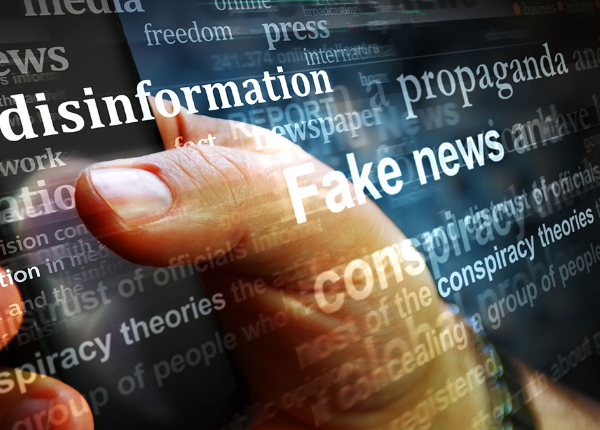Reporters have one lesser-known ally called the Freedom of Information Act. It encourages transparency between government agencies and members of the public.
Tom Hood, executive director of the Mississippi Ethics Commission and Leonard Van Slyke, attorney for the Mississippi Center for Freedom of Information, said the FOIA is a powerful tool when attempting to track down data, records and information needed for a story and for establishing sources.
“Most of the interest in this area came after Watergate, which I remember well,” Van Slyke said, referring to the scandal that forced President Richard Nixon out of office in 1974. “I was in Washington at the time, but now every state has enacted laws to give the public access to meetings of public bodies and to records of public bodies.”
The FOIA was created in 1967 to provide citizens with the right to request access from any federal agency. It has only nine exceptions that protect matters such as personal privacy, national security and law enforcement.
For journalists, this means that reporters are legally able to obtain documents and records from federal entities and release the information to the public. Some commonly requested information is proactively published on the FOIA.gov website. If not already listed, the information needs only to be requested through the agency’s FOIA Office.
Perhaps more importantly, those working in local news should know their state’s laws regarding access to public records. The speakers also suggest that any requests for information be as specific as possible and that reporters be transparent and seek transparency in return when working with government agencies.
“Both sides have to communicate with each other,” Hood said. “…probably the most effective thing you can do is communicate with them clearly and demand that they communicate clearly with you.”
Such a practice not only fosters positive professional relationships but also ensures an effective use of time on both ends.
“We’ve had numerous cases where both sides don’t trust each other,” Hood said. “Maybe the reporter doesn’t trust the people in the city government, so instead of going to them and asking for a particular document, the reporter goes and has a very broad request that covers lots of documents because they don’t want the city to know what they’re looking for.
“The city may jump into action because they don’t want to get in trouble with the Ethics Commission but the next thing the reporter hears is, ‘That’ll be $867.’ Well, the city folks have done a bunch of work for nothing and the reporter doesn’t have what he’s looking for because they didn’t communicate with each other.”
Hood says the best way to avoid this situation is to be upfront and open with the city and narrow down the requested information. In doing so, the city can both help reporters meet deadline and provide material that would only cost a few dollars.
“I’ve had journalists who were asked, ‘Well, why do you want this?’” Van Slyke said. “Just tell them, ‘It doesn’t matter why. It’s available to me under law.’ We don’t have greater rights than the public, but we certainly don’t have lesser rights.”
Though some states do have stricter rules, Mississippi does not require that the individual seeking the information be a resident of the state.
Since the information is open to anyone whether employed as a journalist or not, the journalist has the responsibility to use the information wisely and to further common good.
“I think for a lot of people the lines are blurred between what I would call legitimate journalists and bloggers,” Hood said. “Just because you have a phone or a computer with internet access, doesn’t mean you’re going to abide by traditional journalistic standards. Individual members of the public have the same rights under the Public Records Act. It doesn’t differentiate between anyone for any reason.”
While present at a government meeting, reporters are legally permitted to request a reason if the legislative body decides to go into an executive session.
“They have to tell you why,” Van Slyke said. “And they can’t just say, ‘litigation.’ They have to say more than that. The Supreme Court’s definition is a little fuzzy but they have to say enough that someone later can determine if that was a legitimate reason. I say if it sounds phony to you, stand up and respectfully say, ‘We don’t believe that’s a proper reason. I’d like for you to hold off and have a recess of the meeting until my lawyer is here.’”
Van Slyke advises that if the officials don’t cooperate or allow time for the lawyer to be present, reporters should ask that their objection be put in the minutes to refer to later.
“Your smartphone is a powerful weapon,” Hood said. “It’s got a camera, it’s got an audio recorder. Hold that up and use that. It’s good evidence. The new thing now that just started with one particularly problematic municipality is they’re starting to adopt ordinances to ban cell phones from meetings.”
Hood says that legitimate distractions, such as talking on the phone or having a news organization’s camera equipment block the view of other people, can be banned but that cell phones themselves may not be successfully prohibited entirely.
 Jacqueline Schlick is an Orlando native who found her voice in the deep south. She graduated from the University of Mississippi with a creative writing degree and is now pursuing her master’s in journalism. She serves as the Public Relations Director of Ole Miss Bands and as a Lifestyles writer at the Daily Mississippian. Upon graduation she plans to become a novelist as well as continuing her work in journalism.
Jacqueline Schlick is an Orlando native who found her voice in the deep south. She graduated from the University of Mississippi with a creative writing degree and is now pursuing her master’s in journalism. She serves as the Public Relations Director of Ole Miss Bands and as a Lifestyles writer at the Daily Mississippian. Upon graduation she plans to become a novelist as well as continuing her work in journalism.








